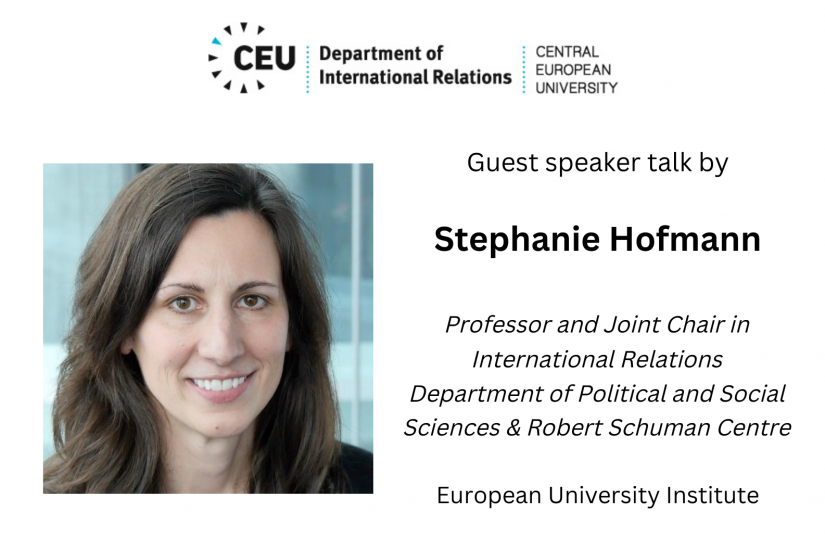
Moderator: Xymena Kurowska, Associate Professor (CEU IR department)
Abstract
Contestation within and across collective security institutions – both the UN and regional organizations (ROs) – oscillates between order-challenging and order-consistent movements. Drawing from the special issue’s framework paper, I look to the ambiguous ideational and institutional foundations of the collective security order(ing) to explain why we see persistent contestation and why order-challenging contestation has remained unsuccessful, even as dissatisfaction with the main organization, the UN, remains high. My argument is twofold. First, the UN has historically been a case of low liberal embeddedness and low legalized institutionalization. The liberal notion that the use of force may be legitimate if done in the name of human rights and self-determination, co-exists alongside illiberal ideas about sovereign territorial boundaries, rights of non-intervention and privileged political communities. Legal ambiguities regarding the definition of peace, enforcement, threat and the relationship between the UN and ROs produce dialectical ordering where liberal and illiberal ordering streams coexist. This means that while the UN has been fraught with contestation from the start, dissatisfied actors can rely on their liberal or illiberal ideas and ROs to protect their interests. Second, the low legal embeddedness and the coexistence of the UN with numerous ROs sustains order-consistent dialectical contestation. Because both sets of institutions are responsible for “ordering” military interventions, dissatisfied challengers can move among organizations as suits them. This is not to say that order-challenging contestation has not occurred. After the Cold War, some actors tried to introduce a liberal peace approach (increasing liberal embeddedness) worldwide, however, without being able to increase legalization. The illiberal ordering stream countered this by engaging in peace operations without reference to the liberal paradigm and even liberal actors found the liberal order-challenging practice too costly. Other challenging attempts to move away from ordering and instead impose an order, such as Russia’s sphere of influence approach, have also remained unsuccessful so far as Russia still engages within the UN.
Biography
Stephanie Hofmann holds the Joint Chair in International Relations between the Department of Political and Social Science and Robert Schuman Centre of Advanced Studies and is director of the Europe in the World research area at the Robert Schuman Centre. She is currently on leave from the Graduate Institute of International and Development Studies, where she is Professor in International Relations and Political Science. Stephanie holds a PhD in Government from Cornell University (2009).
Most of her research revolves around densely institutionalized spaces (also called regime complexes), variegated institutional expressions of multilateralism, national preference formation on foreign and security policy issues and global ordering processes. In terms of issue areas, she mainly focuses on crisis management and cyberspace but is also interested in the nexus between security and economic policy issues. While she has worked a lot on European and transatlantic institutions, she also has started researching the AU, CSTO, SCO, OAS and the UN. Her work has been published, among others, with Cambridge University Press and journals such as Cooperation and Conflict, European Journal of International Relations, International Affairs, Journal of Common Market Studies, Journal of Conflict Resolution, Journal of European Public Policy, Journal of Strategic Studies, Journal of Peace Research, Perspectives on Politics, and West European Politics.
To join online, please use the following Zoom details:
https://ceu-edu.zoom.us/j/95073727560?pwd=a0ZLOHhudHROUGVNNS9sS0o0RGFOZz09
Meeting ID: 950 7372 7560
Passcode: 193862